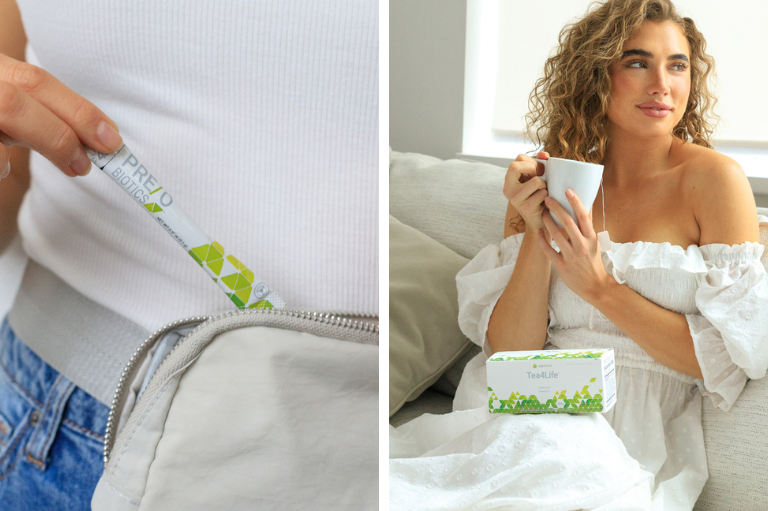Are you sure you want to leave 's MyShop site?
Are you sure you want to leave 's MyShop site?
Are you sure you want to leave 's MyShop site?
Are you sure you want to leave 's MyShop site?

The human gut microbiome is an ecosystem comprised of more than 1,000 microorganisms like bacteria, fungi, and viruses, which can all have a major impact on your metabolism, weight, and especially your immune health.1
It's important to do all you can to preserve this gut ecosystem. The good news: there are things you can do to make a difference. Keep reading to learn more!
Did you know about 70% of your immune health resides in your gut? This is why your diet is important, since your immune health cells are influenced by the foods you eat. These immune cells are also impacted by your gut diversity and composition.
Microbial diversity refers to the number of different species in your gut ecosystem. Studies show that this diversity can make the gut more adaptable and resilient, while a lack of diversity has been linked to a number of health conditions.2,3
For example, an unhealthy weight or poor diet can lead to a lack of gut diversity, abnormal immune response, and inflammation. This inflammation directly offsets the balance of the gut microbiome and can negatively affect your immune health's response to infections.4
On the other hand, you can maintain a diverse, healthy gut biome (and immune function) by improving your diet and lifestyle.
Restoring gut health is not only about taking care of your physical health and diet. Your environment and mental health also play an important role in restoring gut health, too! Here are six things you can do to improve your gut health:
Mother Nature is calling! Research shows that spending time outside can positively affect your gut ecosystem and support your immune function.5
Did you know dietary fiber regulates gut composition?6 Add a little more fiber to your meals, and you’re on your way to a healthier gut!
Foods high in fiber: lentils, black beans, green peas, whole-grain spaghetti, oatmeal, raspberries, pears, and broccoli.
Prebiotics and probiotics both contribute to a healthy gut bacterium. Prebiotics are specialized plant fibers, and probiotics contain strains of bacteria.
Foods with probiotics: yogurt, raw milk, raw cheese, miso soup, kombucha, pickles, sauerkraut.
If you want more pre and probiotics, 4Life Pre/o Biotics is perfect for you!
Go green and stay healthy with plant-based foods! Polyphenols are plant compounds that contribute to gut health.7 A plant-based diet boosts the gut microbiome and immune health.
Gut-healthy vegetables: artichokes, red onion, spinach, red and green chicory.
Stress can play a role in altering your gut health, too! Stress can also prompt unhealthy food choices and negatively impact metabolic health. Additionally, stress and depression can reshape the gut ecosystem's composition through stress hormones and inflammation.8
Try our digestive products that utilize the power of 4Life Transfer Factor®, clean herbal ingredients, and more.

1 Gut ecosystem: how microbes help us
2 A healthy gastrointestinal microbiome is dependent on dietary diversity
3 Diversity, stability and resilience of the human gut microbiota
4 If you want to boost immunity, look to the gut
5 Let Nature Support Your Microbiome
6 Dietary Fibre Modulates the Gut Microbiota
7 Polyphenols-gut microbiota interplay and brain neuromodulation
You are trying to view a MyShop page. Please log out in order to view this website.